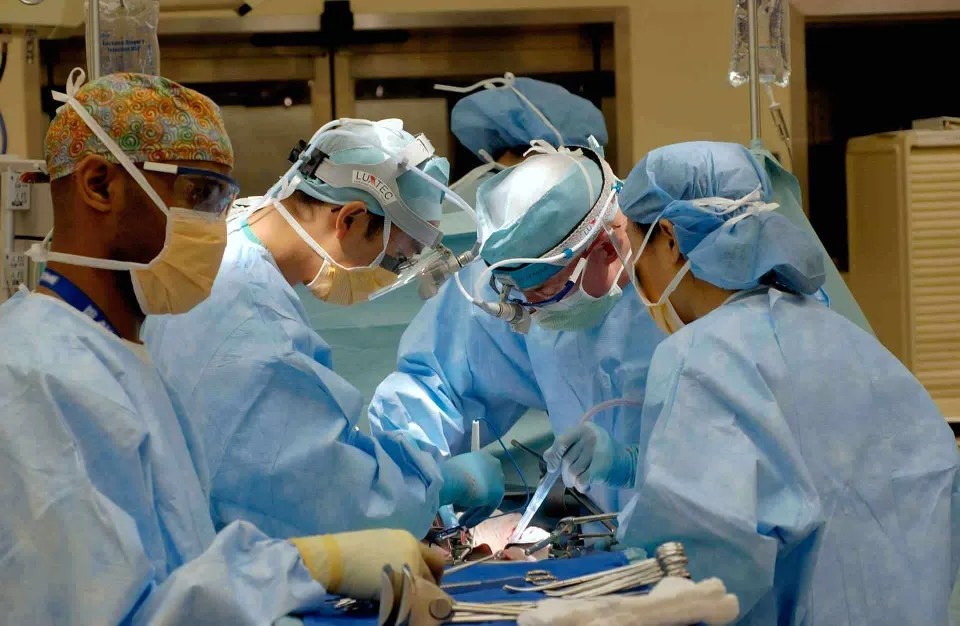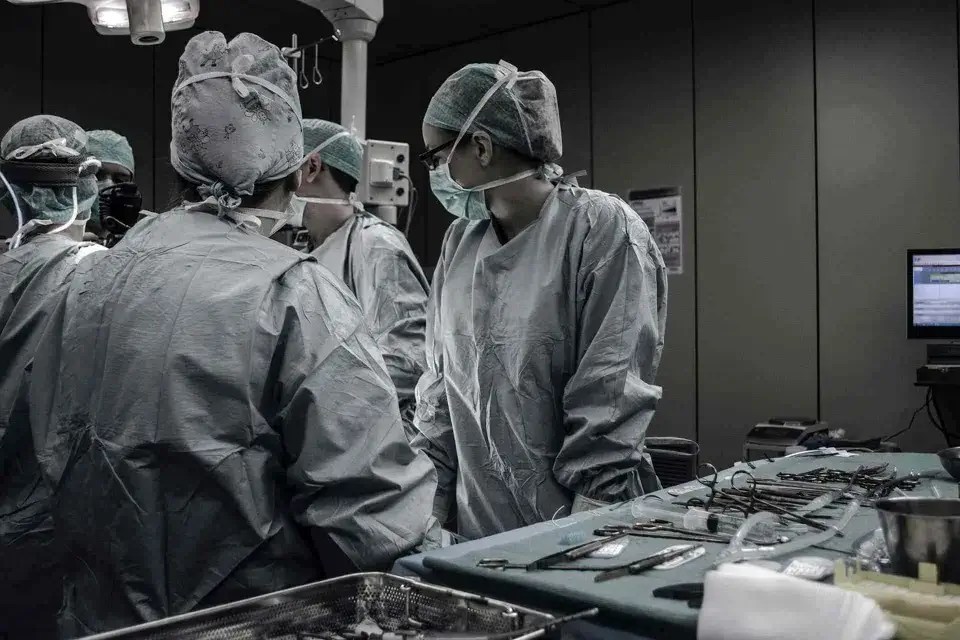
14 Different Types of Surgeons and Surgical Specialties
Learn all about potential medical career pathways for aspiring surgeons.
Being a surgeon is one of the most demanding yet rewarding career paths to pursue within the field of medicine. All types of surgeons require specialized skills and extensive knowledge of anatomy, physiology, chemistry and pathology.
The American College of Surgeons (ACS) recognizes 14 surgical specialties, from a General Surgeon to a Neurosurgeon, as well as multiple subspecialties. With many options, aspiring surgeons should carefully consider the surgical specialties that match their skills and interests.
There are many factors to consider when selecting your preferred specialty, including the length and intensity of the training, the job market and demand, your skillset, and personal interests.
So, let’s explore the 14 different types of surgeons and surgical specialties to help you find the perfect one. But first, we must answer an important question…
What Is a Surgeon?
A surgeon is an essential member of a medical operating team, with a wide range of responsibilities, including diagnosing problems and performing surgical operations. They are specially trained to perform technical and complex procedures to treat diseases, injuries and many other physical issues.
To pursue a career as a surgeon, individuals can complete a Doctor of Medicine (MD) program at an accredited medical school before proceeding to additional study, including residency and specialty training at teaching hospitals and medical centers. The road to becoming a surgeon is long and challenging, but the stable, in-demand career path and rewarding nature of the job make surgery a popular choice for those with a passion for care and medicine.
Learn more reasons to pursue a medical career here.



Different Types of Surgical Specialties
As mentioned, there are many different surgical specialties, all focusing on a different area of surgery, which require specialist skills and knowledge. Most surgical specialties focus on a part of the body, while certain others are determined by the age and gender of the patient.
So, what are the 14 types of surgeons?
1. General Surgeon
General surgeons carry out a wide range of procedures across different areas of the body. This dynamic surgical specialty is usually considered a stepping-stone to other specialties due to the diversity of skills general surgeons must develop. General surgeons diagnose and provide preoperative, operative and post-operative care.
General surgeons must complete five years of general surgery residency after medical school.
2. Colon and Rectal Surgeon
Colon and rectal surgeons perform procedures for the colon, rectum, anal canal and perianal area. They also collaborate with other specialists in surgeries involving different organs and tissues. Colon and rectal surgeons treat a broad range of issues and diseases, from Crohn’s disease to hemorrhoids.
Colon and rectal surgeons must complete five years of general surgery residency and one year of specialty training after four years of medical school.
3. Neurosurgeon
Neurosurgery focuses on the central, peripheral and autonomic nervous systems, including their supporting structures and vascular supply. Neurosurgeons treat various conditions, including brain tumors, head injuries and spinal injuries.
Neurosurgeons must complete seven years of neurological surgery residency, with subspecialties requiring one to two years of additional training.
4. Critical Care Surgeon
Critical care surgeons focus on patients with acute, life-threatening or potentially life-threatening conditions. They are experts in trauma injuries and often perform procedures for critical illness complications.
Critical care surgeons must complete five years of general surgery residency and one to two years of additional specialized training.
5. Obstetrician and Gynecologist
Obstetrics and gynecology (OB/GYN) focus solely on the female reproductive system and pregnancy. From cesarean section procedures to issues related to fertility, OB/GYN specialists are specially trained to treat female conditions and provide routine health checks.
Obstetricians and gynecologists must complete four years of obstetrics and gynecological residency, with OB/GYN subspecialties requiring another two to four years of training.
6. Ophthalmologist
Ophthalmologists treat all eye diseases and disorders. With the responsibility to diagnose and treat all eye and visual issues, ophthalmologists perform various procedures to treat conditions like glaucoma, macular degeneration and retinal detachment.
Ophthalmologists must complete four years of ophthalmology residency, with various subspecialties, including neuro-ophthalmology, requiring an added one to two years of training.
7. Orthopedic Surgeon
Orthopedic surgeons take care of the musculoskeletal system, treating issues surrounding the body’s bones, muscles, joints, associated nerves, arteries and overlaying skin. Orthopedics has many subspecialties, including foot and ankle orthopedics and sports medicine.
Orthopedic surgeons must complete five years of orthopedic surgery residency, with subspecialties requiring one to two years of additional training.
8. Otolaryngologist (also known as an ENT)
Ear, nose and throat (ENT) specialists treat issues related to these named physical areas and associated structures. Otolaryngologists only focus on the head and neck, often treating conditions like hearing loss, allergies and balance issues.
Otolaryngologists must complete five years of otolaryngology residency after medical school.
9. Pediatric Surgeon
Pediatric surgeons provide diagnosis, treatment and post-operative care for children, treating a wide range of complex issues from newborn to teenage years. They collaborate with various specialists, including pediatricians and family doctors, and perform procedures like fetal surgery.
Pediatric surgeons must complete five years of general surgery residency and two years of specialty training after medical school.
10. Plastic Surgeon
Plastic surgeons focus on the repair, replacement and reconstruction of defects in the form and function of the body. In addition to cosmetic surgery, plastic surgeons must have specialist skills to perform surgery on complex wounds and trauma injuries. Popular subspecialties include burn surgery, cosmetic surgery and microvascular surgery.
Plastic surgeons must complete six years of specialized residency, with various subspecialties, including reconstructive surgery, requiring one to two years of added training.
11. Surgical Oncologist
Surgical oncologists focus on diagnosing, treating and providing rehabilitation for cancer patients. They treat patients with rare cancers who require multiple, complex procedures to remove cancer, relieve symptoms or control the spread of cancer.
Surgical oncologists must complete five years of general surgery residency and two years of specialty training after medical school.
12. Thoracic Surgeon
Thoracic surgeons treat issues within the chest, focusing on both cardiac and non-cardiac conditions. Thoracic surgeons perform procedures on areas, including the coronary artery, lungs and heart valves. Common subspecialties include adult cardiac surgery and general thoracic surgery.
Thoracic surgeons must complete five years of general surgery residency and two years of additional specialty training after medical school.
13. Urologist
Urologists concentrate on disorders with the adrenal gland and the genitourinary system, performing various surgical procedures on the kidneys, bladder, prostate, urethra, etc. Urology has many subspecialties, including urologic oncology, infertility and female urology.
Urologists must complete five to six years of urological surgery residency.
14. Vascular Surgeon
Vascular surgeons focus on the circulatory system, treating diseases and disorders of the arteries and veins all over the body, except the brain or heart. Vascular surgery covers a wide range of issues and conditions, from atherosclerosis to the early diagnosis of strokes.
Vascular surgeons must complete five years of general surgery residency and two years of vascular training.
Are You Ready to Become a Surgeon?
Now that you know the different types of surgeons and surgical specialties, it’s time to consider your journey to a successful surgical career.
At Saba University School of Medicine (SUSOM), we offer a Doctor of Medicine (MD) program that can prepare you for a career as a practicing surgeon. Our hands-on education, individualized support services and dedicated faculty all work together to foster a learning environment where students succeed on USMLE exams, achieve U.S. and Canadian residencies and go on to successful careers in medicine.
If you are ready to take a big step towards becoming a surgeon, apply to Saba’s MD program or check out the eight-month Pre-Medical Master’s Program (delivered though our fellow GUS Medical and Veterinary Schools institution, Medical University of the Americas), which is perfect for career changers with an undergraduate degree and some foundational science coursework in their background.
Want to learn more? Hear about studying at SUSOM from Nicole Falls, MD, a SUSOM alum and practicing surgeon:
Please don’t hesitate to contact us if you have any questions or would like to get your medical school journey started.
FAQs About Surgeons
In the United States, it is reported that general surgeons make approximately $443,000 USD on average per year (2024).
In the United States, it is reported that vascular surgeons make approximately $453,000 USD on average per year (2024).
In the United States, it is reported that neurosurgeons earn the highest salaries of any surgical field, at approximately $686,000 USD on average per year (2024).
You can pursue a surgical career by successfully completing a 4-Year MD program (such as SUSOM’s) and then proceeding to surgical residency and possibly some additional subspecialty training.

For Prospective Students
SUSOM is committed to supporting prospective students throughout the admissions process. Please click the following links for detailed information about each topic: